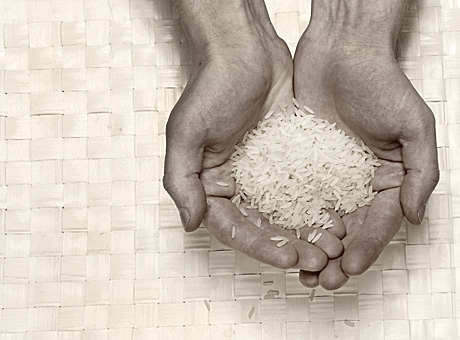
Childhood malnutrition
Washington University to lead global team of scientists

Jeffrey I. Gordon, MD, the Dr. Robert J. Glaser Distinguished University Professor and director of Washington University’s Center for Genome Sciences and Systems Biology, will lead an international team of scientists to find new ways to diagnose, treat and prevent a critical global health problem: malnutrition in infants and children. The work is funded by an $8.3 million grant from the Bill & Melinda Gates Foundation.
Gordon’s research first established a link between obesity and the trillions of friendly microbes that live in the intestine, where they extract nutrients and calories from food. His studies have shown that diet helps shape the mix of microbes in the intestine and that these microbes, in turn, influence how efficiently nutrients and calories are harvested from foods. This dynamic interplay has led Gordon to suspect that an imbalance of certain types of gut microbes conspires with an inadequate diet to trigger malnutrition.
“A complex relationship exists between diet, gut microbial communities and the immune system in severely malnourished children,” says Gordon. “We now have a way to tease apart these influences. This project seeks to discover novel dietary and microbial therapeutics that can be targeted to infants and children living in countries with rampant malnutrition.”
The new research builds on ongoing clinical studies in Africa, South Asia and South America of malnourished and healthy infants and children and their mothers.
Severe malnutrition has long been thought to stem simply from a lack of adequate food. But now scientists understand the condition is far more complex and may involve a breakdown in the way gut microbes process various components of the diet.
The community of intestinal microbes and their vast collection of genes, known as the gut microbiome, are assembled right from birth and influenced by babies’ early environments and the first foods they consume, such as breast milk. As part of the Breast Milk, Gut Microbiome and Immunity Project, Gordon will work with other scientists to evaluate the relationship among first foods, the developing community of microbes in the intestine and the developing immune system.
Gordon’s research underscores the need to understand the workings of gut microbiomes among people of different ages living in different parts of the world, especially as scientists consider manipulating intestinal microbes to improve health and nutrition.






